The Strategic Importance of Agro-Product Screening in Indonesia
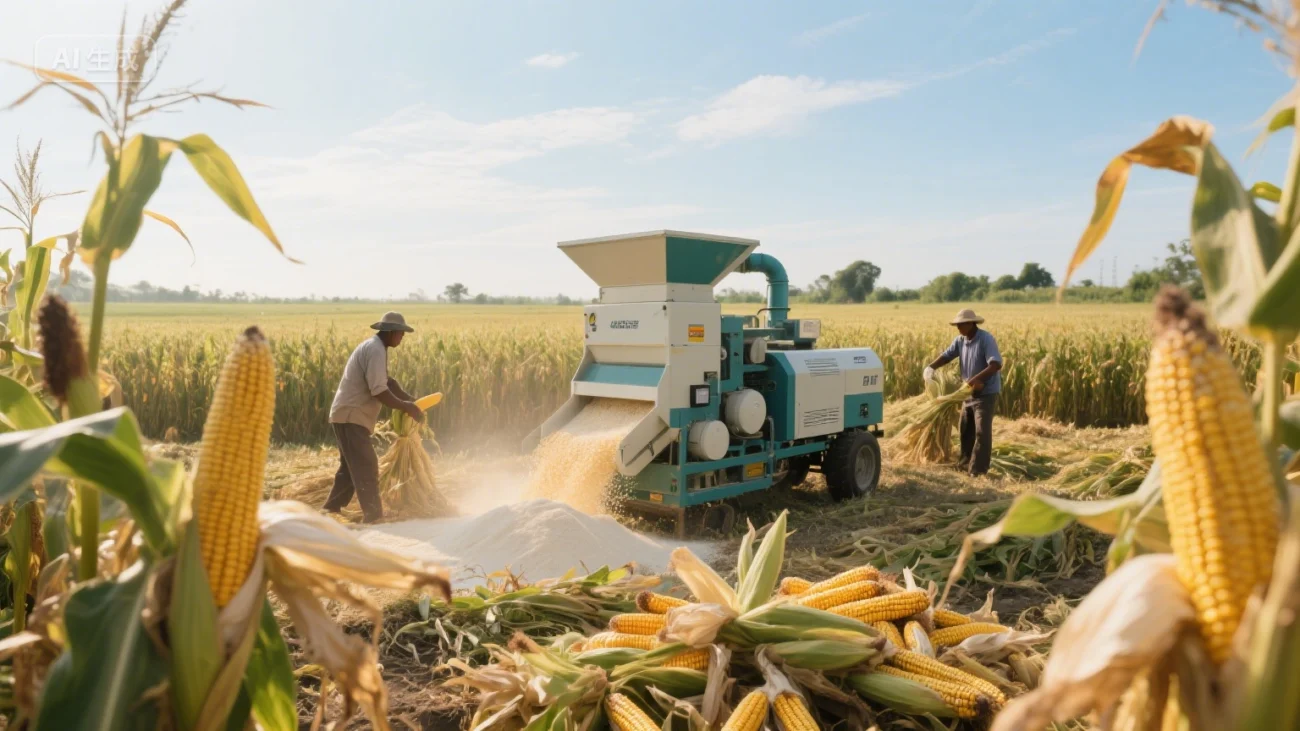
Indonesia, an archipelagic giant with abundant agricultural resources, has established itself as a formidable player in the global agro-processing industry. The nation’s economy remains heavily supported by its rich output of corn, cassava, and coconut—three commodities with immense local and international demand. However, to remain competitive in a rapidly mechanizing world, the nation must optimize post-harvest processes through the adoption of advanced screening technologies. At the heart of this innovation lies the deployment of high-performance agro-product screening machines, which are essential in meeting both the quality expectations of global markets and the efficiency imperatives of modern food processing facilities.
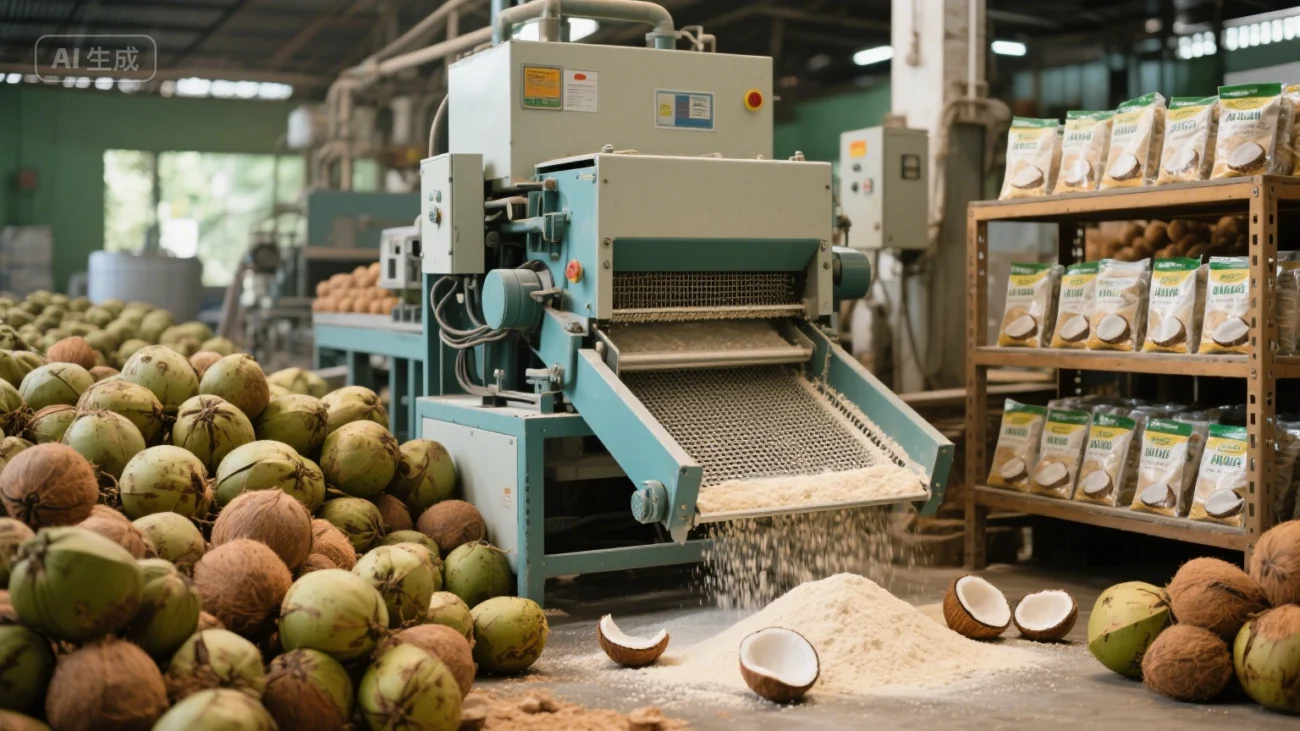
In the traditional context, post-harvest handling of agricultural powders like corn flour, cassava starch, and desiccated coconut was manual, time-intensive, and susceptible to contamination. Such inefficiencies constrained scalability and compromised consistency. The introduction of corn flour sieving machines has transformed the corn milling sector by offering automated, hygienic, and precision-driven particle separation. Likewise, the application of cassava powder screening equipment has significantly elevated product purity and reduced foreign matter in the final output, fostering greater trust from international buyers.
Meanwhile, the processing of coconut—one of Indonesia’s most iconic exports—has undergone a quiet revolution. Modern coconut powder vibrating sieves ensure a high degree of uniformity and filtration, aligning processed coconut powder with the stringent specifications demanded by cosmetic, pharmaceutical, and food industries worldwide. These innovations are not merely upgrades in machinery; they are strategic responses to the increasingly complex dynamics of global trade, regulatory compliance, and consumer preference for clean-label, high-grade agro-products.
Technological Advancements in Screening Machinery
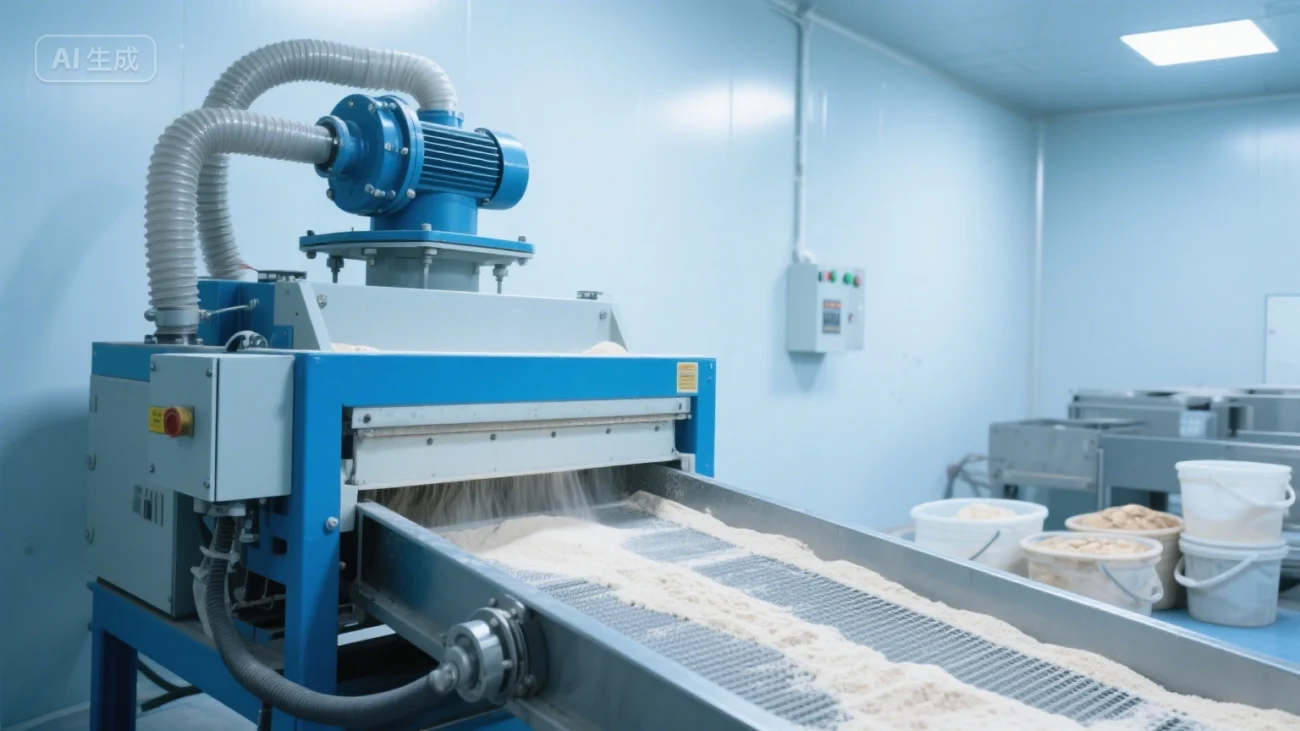
The screening landscape has evolved with precision-engineered vibratory systems designed to address the idiosyncrasies of various agricultural powders. Corn flour sieving machines, for instance, utilize a combination of multi-deck separation, ultrasonic deblinding systems, and customizable mesh diameters to attain granular precision in particle size distribution. This ensures not only product uniformity but also facilitates downstream packaging, mixing, and transport processes. The net result is a dramatic reduction in product loss, processing time, and labor intensity.
For cassava—a crop renowned for its high moisture content and tendency to cake—traditional sifting approaches often proved inefficient. Today’s cassava powder screening equipment leverages anti-clogging features, aerodynamic vibration control, and automatic discharge systems to address these inherent challenges. These systems are constructed from food-grade stainless steel and designed for easy disassembly, promoting stringent hygiene standards while reducing cleaning downtime.
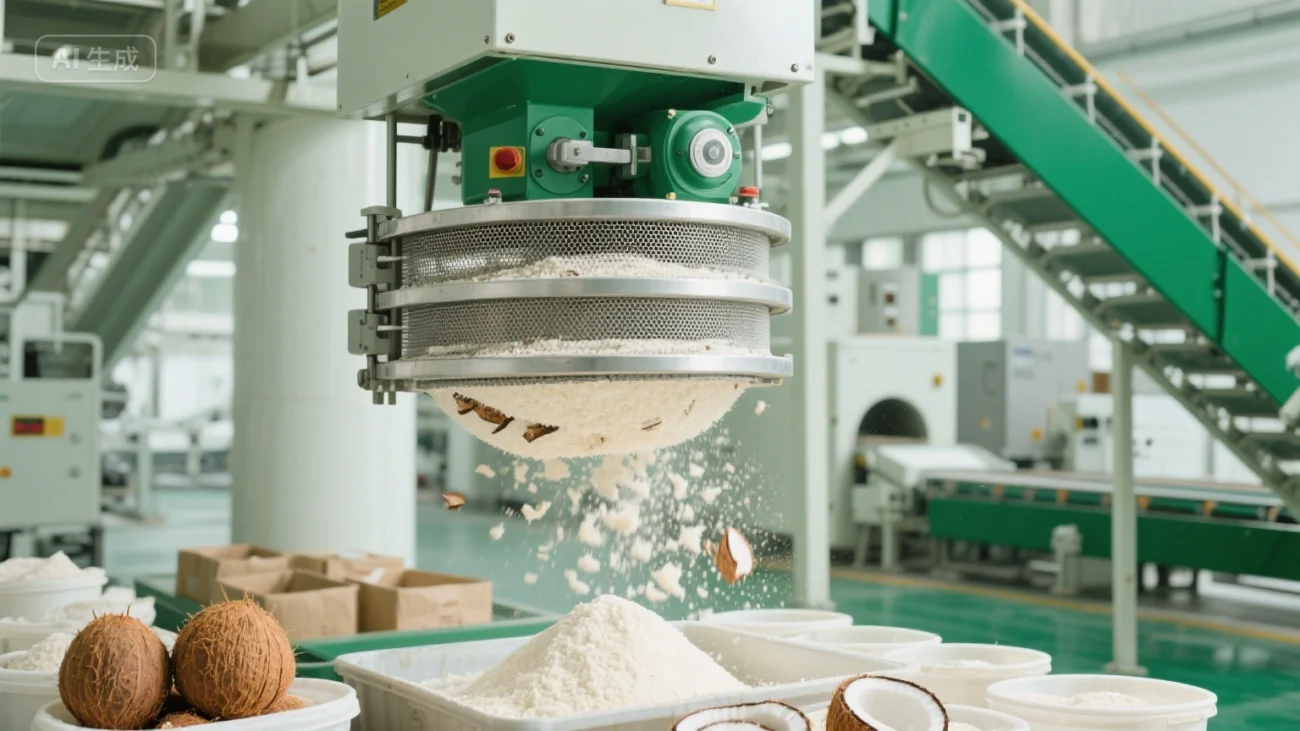
In the coconut processing segment, the demands are even more particular. Fine desiccated coconut powder must meet exacting standards in texture, color, and microbial purity. Cutting-edge coconut powder vibrating sieves offer dual-frequency vibration modes to sift fine particles while eliminating fiber contaminants and husk fragments. Their capacity to operate continuously over extended periods, without overheating or cross-contamination, has made them indispensable to modern coconut processing lines.
Simultaneously, integrative digital control systems have been incorporated into the latest generation of agro-product screening machines. These intelligent platforms enable real-time monitoring of screening efficiency, vibration amplitude, and motor health. Predictive maintenance algorithms embedded within these systems preempt breakdowns and optimize machine lifespan. This confluence of mechanical precision and digital intelligence signals a new era of agro-processing in Indonesia—one defined by robustness, adaptability, and technological foresight.
Economic and Industrial Impact of Screening Innovation
The adoption of advanced screening solutions has catalyzed a fundamental shift in Indonesia’s agro-processing value chain. Small and medium enterprises (SMEs), often the backbone of rural economies, have especially benefitted from the availability of compact, cost-effective corn flour sieving machines. These units have enabled localized processing, reduced dependency on centralized facilities, and empowered farmers to add value at the source of production.
At a macroeconomic level, the deployment of cassava powder screening equipment has enhanced Indonesia’s competitiveness in the global starch market. By consistently producing high-purity, contaminant-free cassava flour, Indonesian processors have expanded their export footprint to regions like the European Union and East Asia—markets that demand stringent food safety and traceability compliance. The reliability of modern screening technologies has allowed these producers to meet international certifications such as ISO 22000 and HACCP, thus unlocking new trade channels.
The coconut industry, long plagued by inefficiencies in manual sieving and high rejection rates, has seen a paradigm shift with the advent of automated coconut powder vibrating sieves. These machines have improved processing throughput by over 30%, reduced energy costs, and ensured that every kilogram of raw coconut yields the maximum possible amount of usable powder. The economic implications are significant—not only in terms of direct revenue increase but also through the stabilization of employment across rural coconut-producing regions.
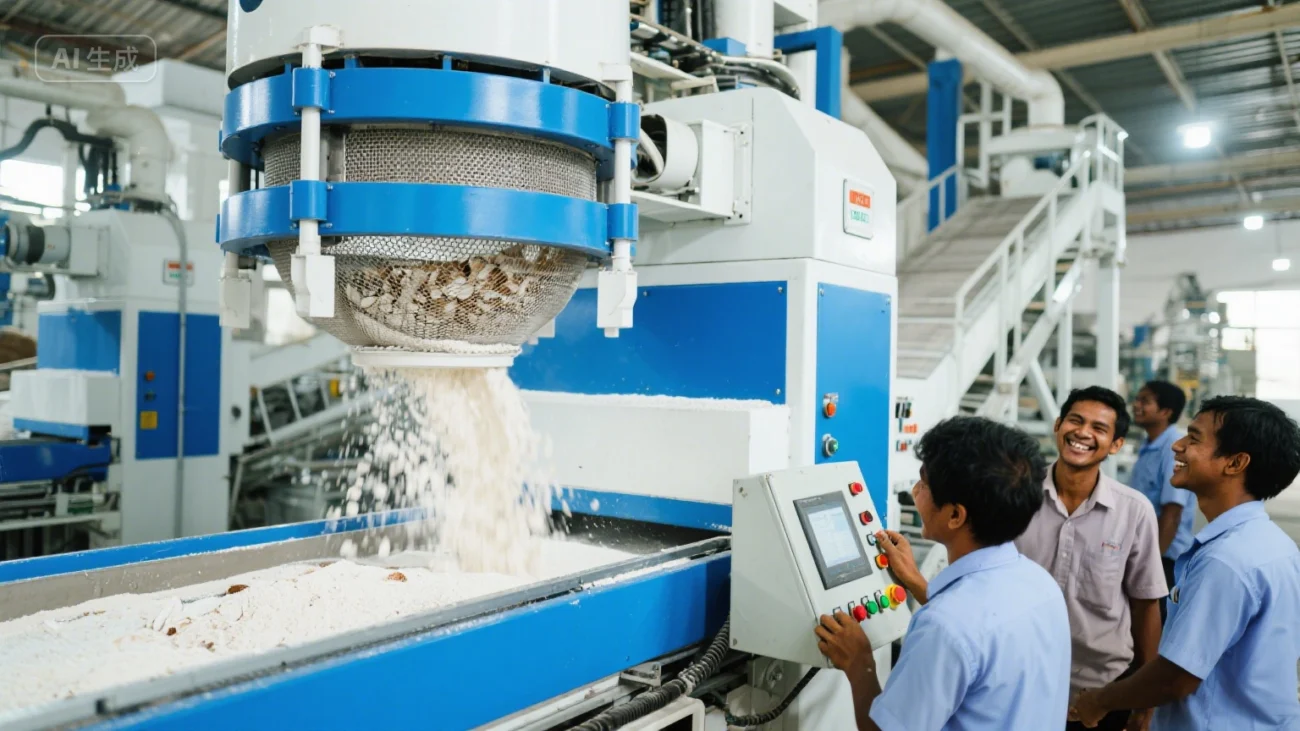
Moreover, the systemic integration of agro-product screening machines has contributed to industrial resilience. With enhanced machine reliability, lower maintenance costs, and higher operational uptime, processing facilities can better absorb market fluctuations and supply chain disruptions. The cumulative effect is a more sustainable and robust agro-industrial ecosystem—one that can scale responsively and produce consistently high-quality output across seasonal cycles.
In sum, screening innovation in Indonesia transcends mechanical improvement. It represents a strategic realignment of agricultural processing towards a future where precision, safety, and scalability converge. The technologies driving this shift—corn flour sieving machines, cassava powder screening equipment, coconut powder vibrating sieves, and comprehensive agro-product screening machines—are the vanguard tools in Indonesia’s agricultural renaissance.
